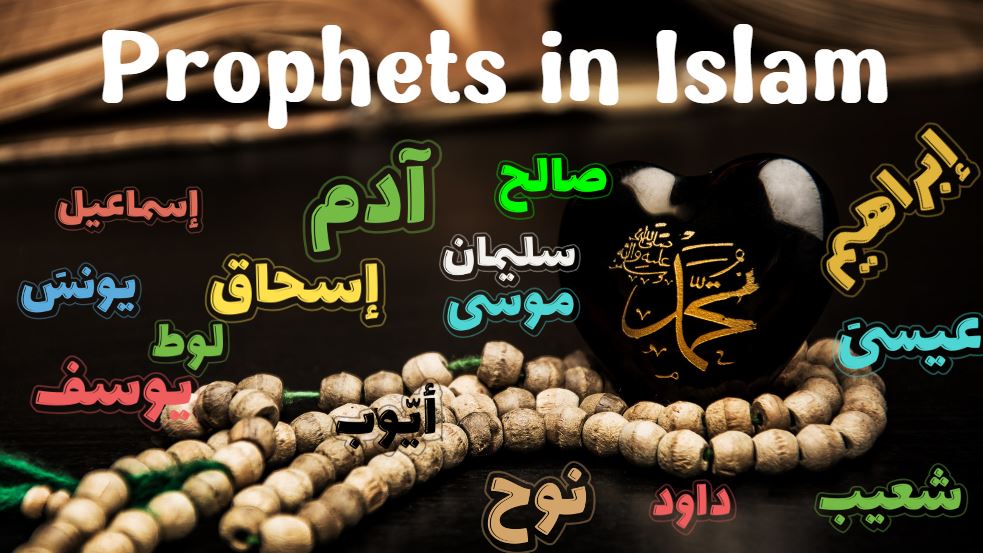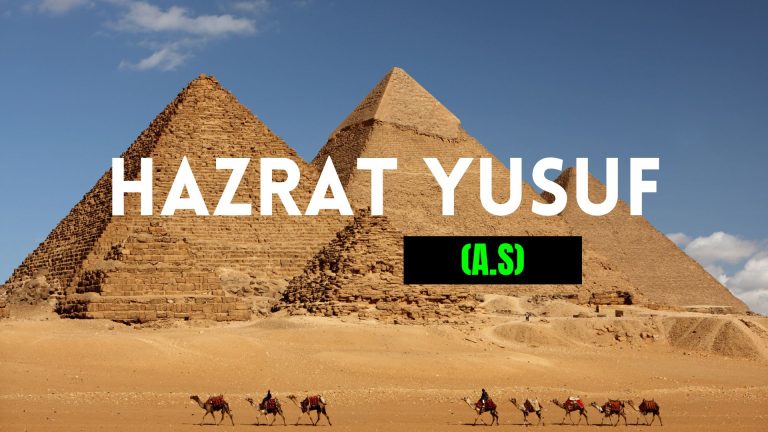Prophets in Islam
Prophets in Islam are highly esteemed people in Islam who are thought to have carried God’s message and represented the best human behavior. Certain individuals are regarded as messengers entrusted with conveying divine revelations and are frequently aided by angelic communication. Islam believes there have been more prophets than those named in the Quran.
“And there is a messenger for every community,” the Quran declares.
This fundamental belief in prophets is one of the six pillars of the Islamic faith. Let us examine the Prophets Of Islam in more detail.
Throughout history, every prophet in Islam propagated core beliefs, including the Oneness of God, worshiping Him exclusively, abstaining from idolatry and sin, and affirming belief in the Day of Resurrection and the afterlife.
Prophets and messengers were dispatched by God to various communities across different epochs, each delivering the same fundamental message of faith and righteousness.

What is the difference between Prophets and messengers?
In Islamic terminology, while both messengers and prophets in Islam are individuals chosen by God to convey His message to humanity, there is a distinction between the two roles:
1. Prophets (Anbiya)
2. Messengers (Rusul)
How Many Prophets in Islam?
According to Islamic belief, the first prophet and human was Adam, created by God. While many figures from Jewish and Christian traditions are recognized as prophets in Islam, their names are often rendered in Arabic, such as Elisha (Alyasa’), Job (Ayyub), and Jesus (‘Isa). The scriptures revealed to earlier prophets are also acknowledged: the Torah (Tawrat) given to Moses (Musa), the Psalms (Zabur) bestowed upon David (Dawud), and the Gospel (Injil) entrusted to Jesus.
The final prophet in Islam is Muhammad ibn ʿAbdullāh, regarded as the “Seal of the Prophets” (Khatam an-Nabiyyin). Muslims believe that the Quran was revealed to him over time, transcribed by his companions. The Quran is considered the immutable word of God, safeguarded from distortion or corruption, destined to endure unchanged until the Day of Judgment. Here is the list of 25 Islamic Prophets.

Here is a brief introduction to each of these Prophets in Islam.
1. Adam (Adam)
According to Islamic tradition, He is considered the first human being and the father of humanity.
2. Idris (Enoch)
He is known for his wisdom and knowledge, and he called people to worship God alone.
3. Nuh (Noah)
He is known for building an ark and preaching to his people for many years to turn away from idol worship and to worship only Allah. He is regarded as the builder of the Ark during the Great Flood.
4. Hud (Heber)
He was sent to the people of ‘Ad, who were known for their strength and arrogance. He warned them of the consequences of their actions and invited them to worship Allah alone.
5. Saleh (Methuselah)
He was sent to the Thamud people, known for their skill in carving houses out of rocks. Saleh warned them against their idolatry and cruelty, but they rejected his message.
6. Ibrahim (Abraham)
He is known as the patriarch of monotheism and was tested in many ways by God. He is considered the father of the prophets and is associated with building the Kaaba in Mecca.
7. Lut (Lot)
He was sent to the people of Sodom and Gomorrah, who practiced immoral acts. He called them to abandon their sinful behavior, but they refused, leading to their destruction.
8. Isma’il (Ishmael)
He is the son of Ibrahim and Hajar, considered a prophet and a forefather of the Arab people.
9. Ishaq (Isaac)
He is the son of Ibrahim and Sarah and is also considered a prophet in Islam.
10. Ya’qub (Jacob)
He is regarded as a prophet and the father of the twelve tribes of Israel, son of Ishaq.
11. Yusuf (Joseph)
He is renowned for his story of being betrayed by his brothers and rising to prominence in Egypt. His tale showcases forgiveness and redemption, detailed in the Quran.
12. Shu’aib (Jethro)
He was dispatched to the people of Madyan, urging them to worship Allah and desist from dishonesty in trade and mistreatment of others.
13. Ayyub (Job)
Known for his unwavering patience amidst immense suffering. Despite losing his family and health, he remained steadfast in his faith.
14. Dhul-Kifl (Ezekiel)
Although not extensively mentioned in the Quran, he is believed to have been a righteous prophet who guided his people towards righteousness.
15. Musa (Moses)
One of the preeminent prophets in Islam, he confronted the Pharaoh of Egypt to liberate the Israelites from bondage. He received divine guidance and the Torah (Tawrat).
16. Harun (Aaron)
Musa’s brother and a prophet in his own right he supported Musa in his mission to free the Israelites from oppression.
17. Daud (David)
He was known for his prowess in battle and his psalms of praise to Allah. He was also a just ruler and a wise judge.
18. Sulayman (Solomon)
He is renowned for his wisdom, wealth, and ability to communicate with animals and control jinn. He was a mighty king and a prophet.
19. Ilyas (Elias)
He is known for his zeal in calling his people to worship Allah alone and for his victory over the false prophets of Baal.
20. Alyasa (Elisha)
He was a successor to the prophet Ilyas and continued his mission of calling people to worship Allah.
21. Yunus (Jonah)
He is known for being swallowed by a giant fish after initially fleeing from his mission to the people of Nineveh. He eventually fulfilled his duty, and they repented.
22. Zakariya (Zechariah)
He was the father of Yahya (John the Baptist) and was blessed with a son in old age through the mercy of Allah.
23. Yahya (John the Baptist)
He preached repentance and the coming of a greater prophet (Isa/Jesus). He baptized people in preparation for the arrival of Isa.
24. Isa (Jesus)
Considered one of the mightiest messengers of Allah, he performed miracles by the will of God and preached the Injil (Gospel).
25. Muhammad
Allah’s final prophet and messenger delivered the Quran, which serves as humanity’s final revelation and guidance.
FAQs
Who is the Next Prophet after Adam?
Adam’s succession was marked by a significant event: the tragic murder of Abel by his brother Cain, which marked the first instance of homicide on Earth. Consequently, when the time arrived for Adam to designate a successor, he chose Seth, who assumed the mantle as the second prophet.
How many prophets in Islam are recognized altogether?
There are 25 prophets mentioned in the Qur’an, although some traditions suggest there have been 124,000 in total. These prophets were chosen by Allah and tasked with delivering His messages to humanity. Some of them were entrusted with holy scriptures to convey to humankind.
Conclusion
Prophets in Islam hold a revered position, serving as conduits for God’s message and exemplifying exemplary human conduct. While messengers are a subset of prophets tasked with delivering new divine revelations, all prophets share the fundamental mission of guiding humanity toward righteousness and monotheism.
From Adam, the first prophet, to Muhammad, the final messenger, each prophet played a crucial role in shaping Islamic belief and guiding their respective communities. Their teachings and actions emphasized core beliefs such as the Oneness of God, accountability in the afterlife, and the importance of moral conduct.


